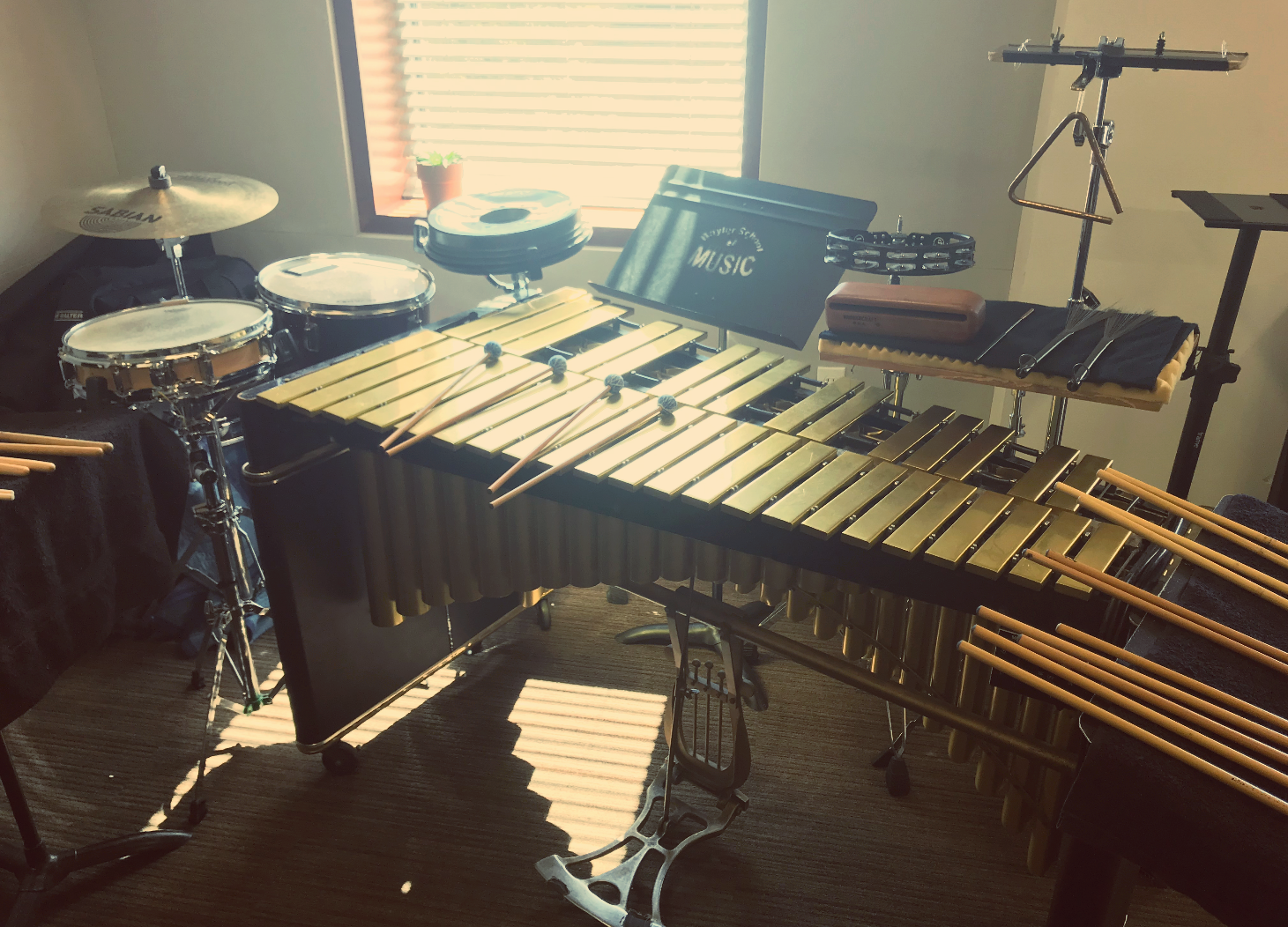Composer Lab
Overview
This project will give music composition students the opportunity to write a new solo instrumental work. Students will collaborate directly with the performing artist in workshops throughout the fall semester, culminating in a performance of the new works developed in those sessions. The performance will be recorded in high quality audio and video to provide documentation for all artists involved. Students will come away from this project not only with a new work in their catalogue, but a high quality document that can be used for professional purposes.
Fall 2020
Performing Artist: Amy Petrongelli, voice (soprano)
Composers may write either for the voice alone or for voice + electronic accompaniment (fixed or interactive) or looper pedal. Pieces must be 2-3minutes long. Each composition will be performed and recorded by Dr. Petrongelli sometime during the Fall 2020 semester and posted online (a link will be available here when the first performance has been completed). This year's Composer Lab will have roughly 10 participants.
Amy Petrongelli's Voice Specs
- What's your range? The more specific the better! So like if there's an ideal range for straight tone, a fuller sound, text intelligibility, anything that comes to mind!
- My voice is happiest keeping within a range of Bb3 - Bb5, and a general tessitura staying between E4 – G5.
- Straight tone is easiest for me up to F5 - after that, it’s tough to keep the vibrato out of my sound
- Fuller tone can be accessed from C4 on up
- Text intelligibility is best up to G5; after that, it gets harder to get things across.
- Passaggio: are there any notes that would be tricky if you were rocking back and forth between two adjacent notes?
- Trickiest notes for me to oscillate between would be a D5-E5/Eb5, my passaggio lies between C5 – E5.
- Any money notes?! Like if you were doing any soaring high notes, what's exciting for you but not like terrifying?
- Best high notes would probably be in the F5 - Ab5 range. There's the most flexibility here in terms of dynamic range here; A5 and Bb5 are great, too, just at a much louder dynamic.
- Use these sparingly, please – and, try to avoid stepwise line writing up to the top-most note. It’s much easier to leap up to a high note than climb a pitch ladder up
- Is there anything in particular that tires your voice out? Anything I should steer clear of.
- The biggest issues would be to be stuck in either of the extreme ends of my voice for an extended period of time, or to straight tone between D5 - F5 for an extended period of time. Everything else I'm usually able to find a technical way around.
- Is there anything that you love to do? Like long lines, rhythmic stuff, acrobatic things, whatever!
- The biggest NO for me would be something that's just full-on operatic sounding with lots of sustained long lines without much dynamic change. I have a lighter voice, so heavy singing isn't great for me (I'm more on the soubrette/light lyric side of Fachs). Otherwise, I’m pretty open-minded!
- If you have something in mind you'd like to try, but wonder if it will be okay, please feel free to ask! I'm always happy to send along sample recordings of what/how things will sound in a particular range/text setting.
Voice Examples:
- Juliana Hall: Sonnet from Night Dances (full on, with good acap start)
- Amy Beth Kirsten: Yes I Said Yes (fuller singing but more flexible play between vib and non-vib)
- Chris Cerrone: Goldbeater excerpt (big leaps and low singing with floating highs)
- Melissa Dunphy: June #1 (looper pedal!)
- Nick Zoulek: Interlude (still unmixed, but mostly to show the lower part of my range (B4 down to the basement) with close mic placement & non vib) All layered voices are my own in case someone’s interested in something like this.
Fall 2019
14 students participated in Composer Lab Fall 2019.
Performing Artist: Chris Sies, percussionist
Instrument List:
- 3.0 Octave Vibraphone
- 13” x 12” Tom Tom
- 14” x 5” Snare Drum
- Suspended Cymbal
- Brake drum
- Triangle
- Tambourine
- Wood Block

Important Dates:
- September 30 - October 4, Workshop Week #1
- October 20 - October 24, Workshop Week #2
- November 1 - final drafts due, 5pm
- November 10, 8pm - Concert of New Works for Solo Percussion in the Harrington House to accommodate Live Visual Art from the students of professor Julia Hitchcock.
Score Selections (for composers to study as they prepare to write)
- Silent Sister (2007), Ryan Streber
- Dosillos y Humeros (2005), Ryan Streber
- Theatrics (2015), Jules Pegram
- moved by ambition, but also by an obscure loyalty (2015), Ben Willis
- Zyklus no. 9 (1959), Karlheinz Stockhausen
Reference Material:
- How to Write for Percussion: a comprehensive guide to percussion composition, Samuel Z. Solomon (a physical copy is available in Crouch)
- The Cambridge Companion to Percussion, edited by Russell Hartengerger (available online; a physical copy is also available in Crouch)